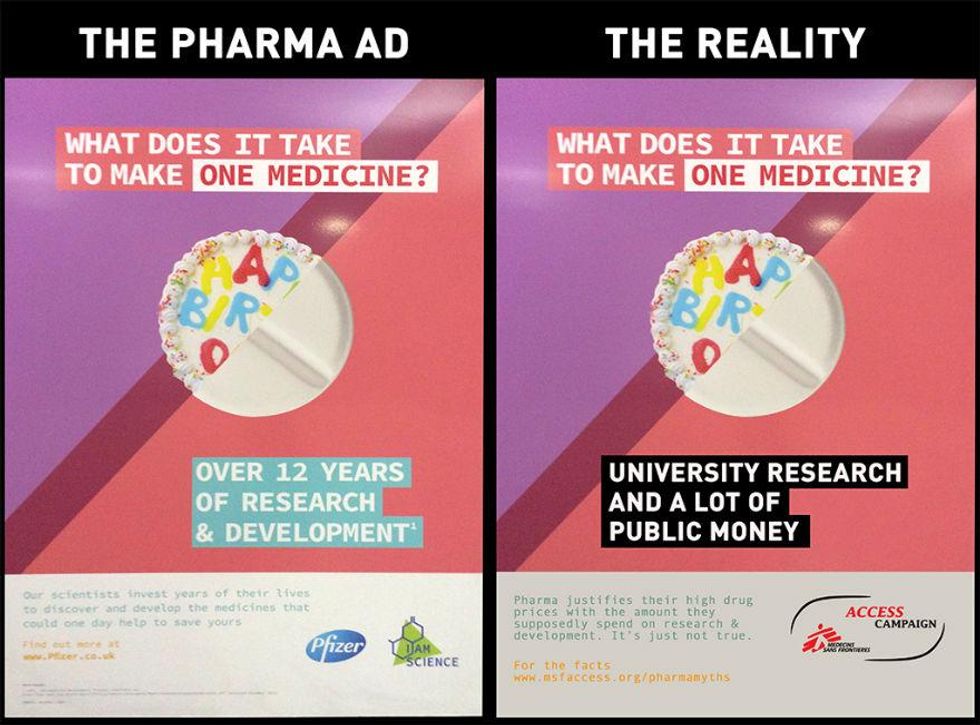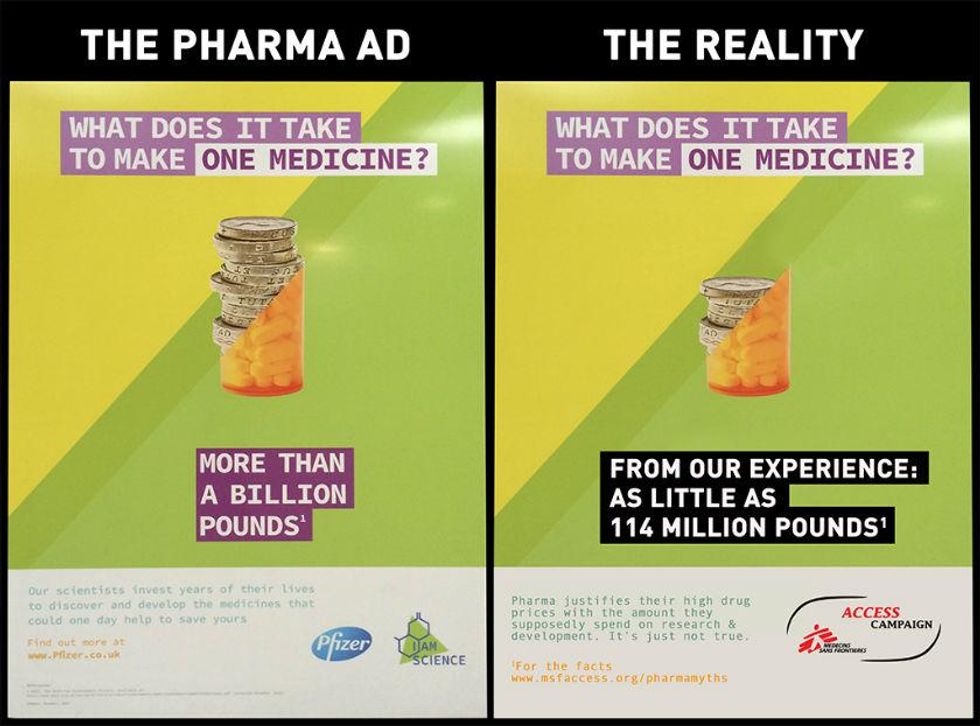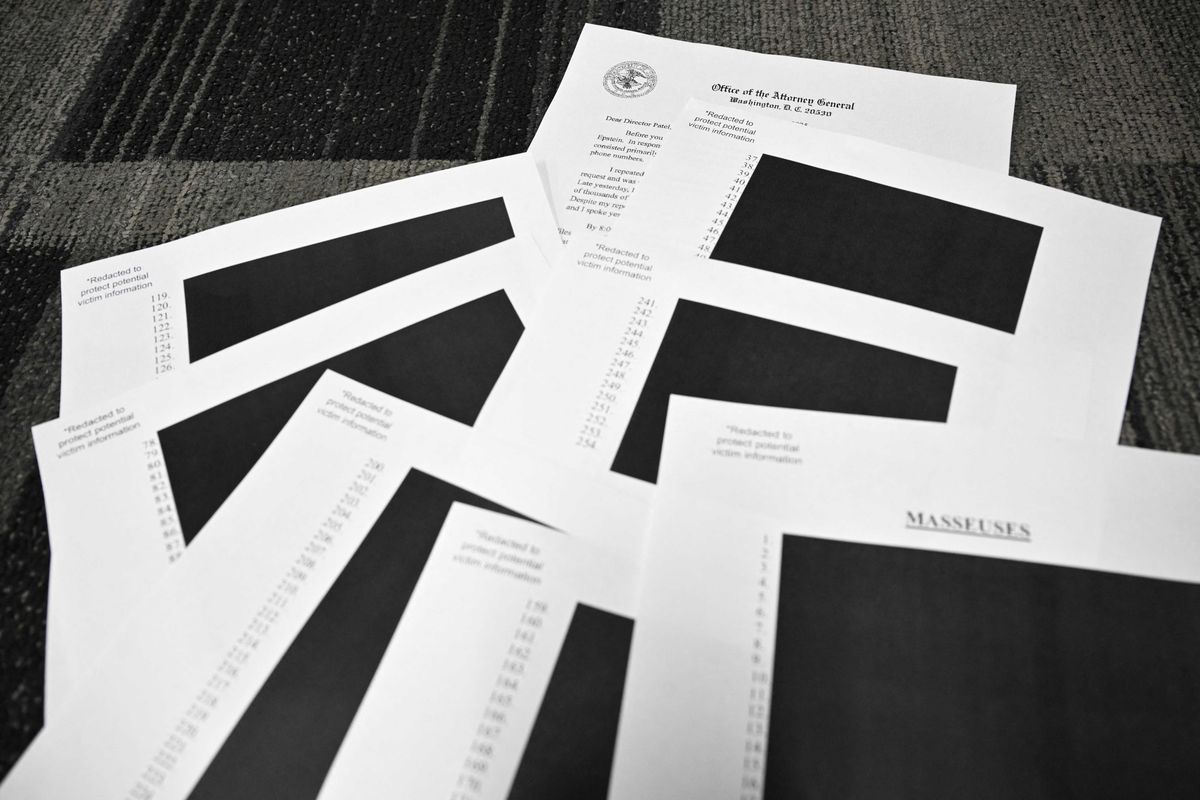News
Bethan McKernan
Feb 10, 2016
Pharma giant Pfizer has been distributing misleading ads about drug development costs at Westminster Tube station in an effort to sway both the public and MPs, medical charity Médecins Sans Frontières (MSF) has claimed.
The large ads near Parliament claim, among other things, that it costs £1bn in research and development to make a new medicine.
They appear to be aimed at "convincing the public and MPs who pass through the station that the high prices pharmaceutical companies charge for medicines are justified," the charity said in a statement.
The large posters were first spotted by activists, who stickered over the ads with what they claimed are "pharma myth" busting facts.
According to MSF, the drugs can actually be manufactured for as little as £114m.
And they say that while testing new drugs may take 12 years, a large portion of the research is done by universities, using public money.
MSF have now created their own version, which they say are "corrected posters":
Dr Manica Balasegaram, Executive Director of MSF's Access Campaign, said in a statement:
Companies like Pfizer who claim they’re in the business of [research and development] are really only buying smaller companies with blockbuster drugs to make profit, while shutting their R&D facilities – like the anti-infective R&D unit in the UK – and ignoring the development of drugs we really need.
Pfizer makes nearly £12 million a day in sales off the pneumonia vaccine alone, yet continue to price the vaccine out of reach for many developing countries, where almost a million kids die from the disease every year.
i100 contacted Pfizer UK for comment on MSF's claims. A spokesperson said that "effective immunisation programmes require a multifaceted approach":
Pfizer works with many partners globally including Gavi, the Vaccines Alliance, UNICEF, and others, to provide access to our vaccines, including providing Prevenar 13 [pneumonia vaccine] to the world’s poorest countries at the lowest price available.
We also provide Prevenar 13 for use in humanitarian settings where alternate pathways to access do not currently exist.
There has been increased public debate about drug pricing and monopolisation since the outcry over "most hated man on the internet" Martin Shkreli hiking up the price of an HIV drug by 4,000 per cent last year.
The issue has become a hot-button topic in the US presidential election.
Top 100
The Conversation (0)














